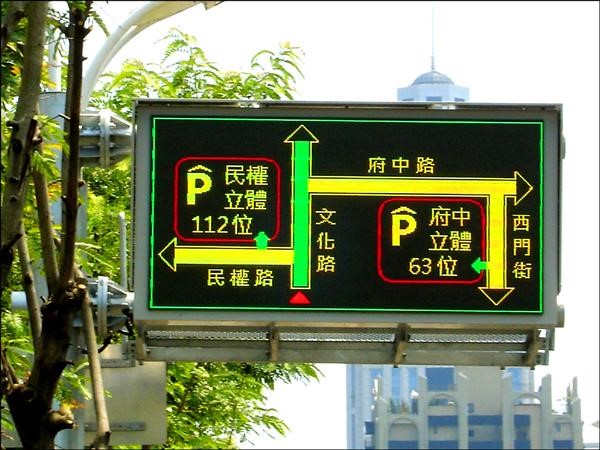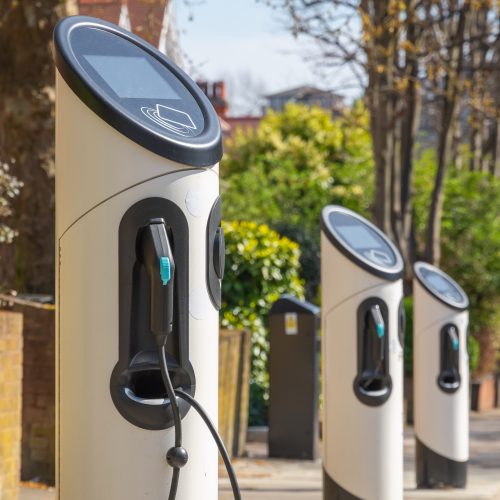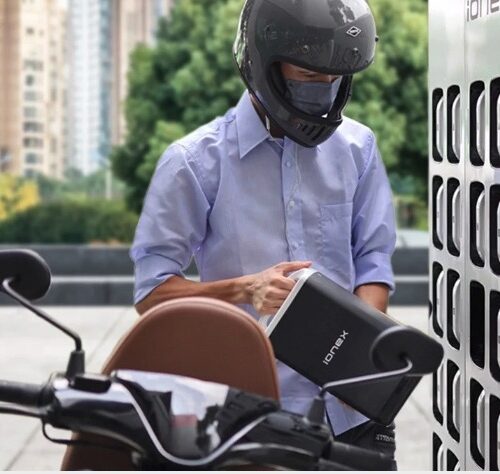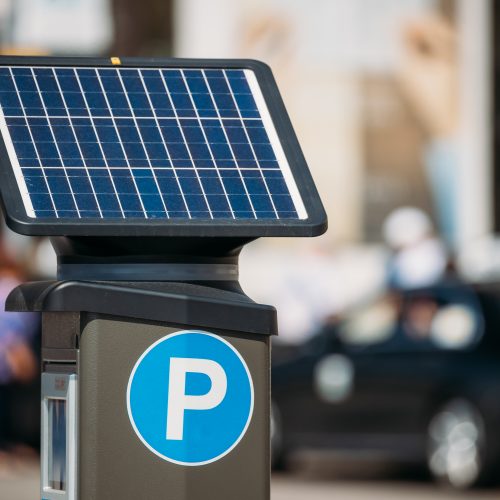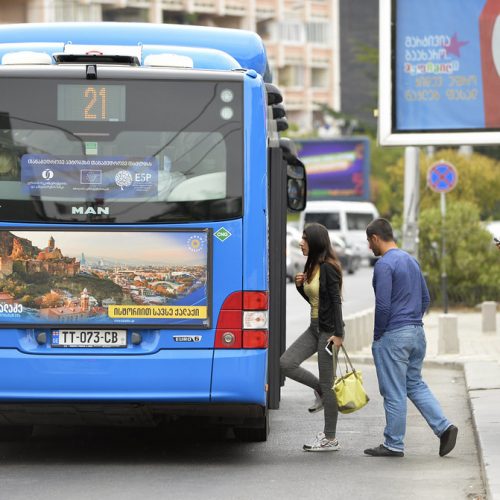Acknowledgements
We would like to express special appreciation to Mr. Wei-Che Huang (Tainan City Mayor), Dr. Ming-Te Wang (Chief of Tainan City Bureau of Transportation), and Mr. Jason Chun-Shen (CEO of Acer Inc.), for their contribution to the preparation of this case study.
Context and policy overview
Tainan combines history with urban growth, making it an excellent case study. With a population of around 1.86 million, Tainan is a good example of an urban setting with scalable smart parking solutions.
Tainan’s commitment to sustainable urban development can be seen in its smart parking system, which shows how technology can be used to ease congestion, cut emissions and enhance urban life. Its varied parking settings are a perfect testing ground for smart parking solutions, making it an ideal case study for cities that are looking to modernise.
A smart parking system uses sensors, cameras and other technology to track the availability of parking spaces in real time. Advanced smart parking systems use sensors, data analytics and mobile apps to guide drivers to available parking spaces, minimising search time and traffic congestion. Real-time updates on parking availability improve user experience and reduce environmental impact, fostering a more efficient and environmentally friendly urban environment.
Background
Tainan is a historical city with narrow streets and small blocks, and tourists flood the city at weekends and during holidays. The question of how best to utilise the city’s limited parking spaces is one of the major challenges facing the Tainan Transport Bureau. , the lack of parking spaces meant that around 30 per cent of all cars on the roads were driving around looking for parking, with drivers taking more than 15 minutes to find a parking space. Idling and slow-moving cars caused air pollution and carbon emissions.
Originally, the Parking Management Bureau had its own collectors issuing manual tickets. However, owing to manpower shortages and inefficient issuance of public parking tickets, the city’s parking shrank and ceased to be sustainable.
Implementation
The city invited the private sector to provide a state-of-the-art roadside smart parking system using a build-operate-transfer (BOT) model so that the financing of parking could become self-sufficient.
That public-private partnership (PPP) has been divided into two longer-term phases:
- Phase 1 (2018-38): BOT project with a 20-year construction and operation period, providing 2,000 parking spaces. The space utilisation rate has increased by 38 per cent, the rate has increased by 23 per cent, and user satisfaction has reached 90 per cent.
- Phase 2 (2021 onwards): BOT project for an additional 2,000 parking spaces, including 60 spaces with EV charging facilities.
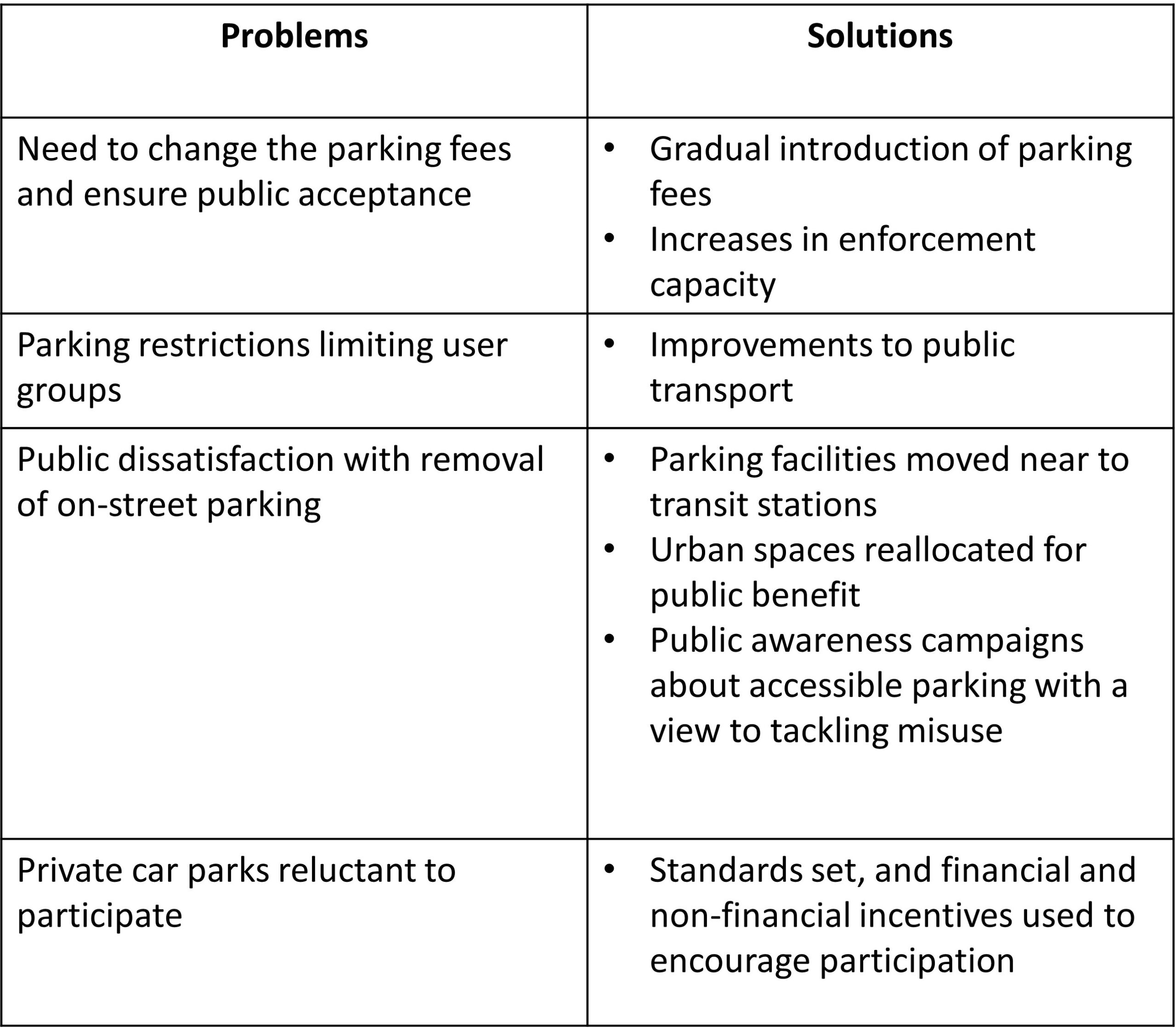
Results and lessons learned
The PPP has resulted in a number of improvements:
- The efficiency of the city’s collectors has increased, as collectors can now identify and focus on parking hotspots and earn better income.
- Utilisation and revenue rates have increased, with city authorities collecting more parking fees and investing in new services.
- The long-term contract encourages the private sector to invest in more efficient systems, and the modular system allows new features (such as charging services for electric vehicles) to be added in response to changing needs.
The success of Tainan’s smart parking initiative is an example to cities around the world. By prioritising interoperability, user-centric design, PPPs, revenue allocation and data-driven decisions, cities can reshape urban mobility and improve parking experiences, paving the way for a more connected and sustainable future. Cities can benefit from Tainan’s experience in developing their own parking systems, establishing an essential component of sustainable mobility.
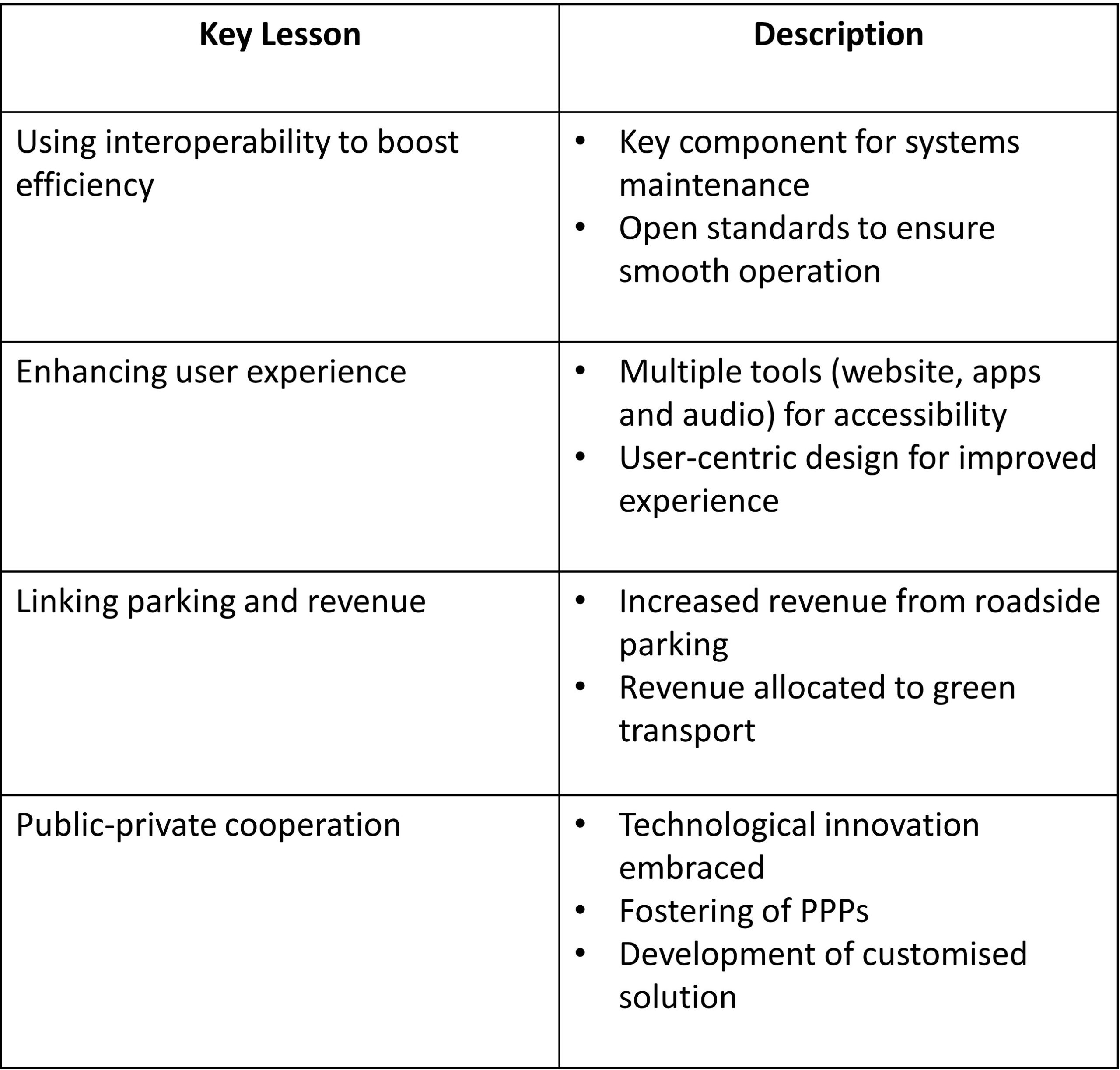
Similar initiatives
- Taipei China – PKLOT app: Acer ITS Inc. introduced a pioneering parking solution in 2014 with its smart parking meter system. This roadside parking management system features automatic occupancy detection, licence plate recognition, cloud platform compatibility and multi‑payment technology. It integrates seamlessly with various payment methods, including contactless smartcards, online mobile payments and the associated PLKOT app. First launched in Tainan, its use has expanded both nationally and internationally, being used in Singapore and Macau as well. The PKLOT app boasts 2.1 million global downloads and offers multilingual support.
- Czechia – Parknav: The Parknav smart parking solution in Czechia is powered by AI and features data analysis and connected vehicles. It uses an intricate network of parking sensors, GPS data and historical parking patterns to accurately predict the availability of parking. The mobile app provides real-time parking guidance to drivers, facilitating the efficient identification and reservation of parking spaces. (For more information about Parknav, click here.)
- Estonia – Parkl: Estonia’s Parkl is a cutting-edge smart parking solution that leverages sensors and a mobile app to simplify parking for drivers. Real-time data keep users informed about parking availability, payment options and navigation to the nearest available space. Parkl also offers additional features, such as the ability to reserve spaces and timely reminders before parking slots expire. The winner of the award for the best smart city solution startup at the 2019 Central European Startup Awards, Parkl is enhancing both urban mobility and driver convenience in Estonia.
- Taipei China – smart parking sensors: Smartway Solutions Inc. has partnered with the Taipei City Traffic Engineering Office to deploy its smart parking sensors citywide. These sensors enable automated billing and payment, deliver real-time parking space information 24/7, and ensure accurate and fair pricing for users, enhancing the efficiency of urban parking. Boasting an impressive accuracy rate of more than 99 per cent, these sensors operate in the districts of Xinyi, Nangang, Neihu, Shilin and Wenshan. This parking solution is due to be rolled out in Chiayi City, and there are also plans to launch it in Thailand. (You can find out more about Smartway Solutions Inc. here.)








